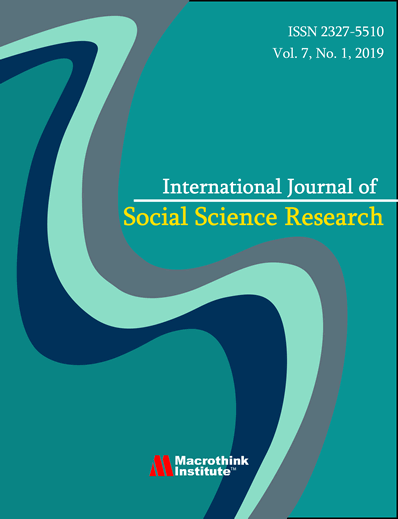Agreement and Consensus Between Government and Rebellion Groups During War Politics in Ampara District of Sri Lanka
DOI:
https://doi.org/10.5296/ijssr.v9i1.18470Abstract
This article is about the agreement and consensus between government and rebellion groups during war politics with special reference to Ampara district in Sri Lanka. The article argues that war causes transforming normal pattern of politics if we perceive of war as power struggle. The article further argues that to understand politics and power struggle during war requires conceptualization of war politics. Therefore, this article has attempted to conceptualize war politics and applied it to understand the nature and content of war politics in Sri Lanka in general and in Ampara district in particular during the period of protracted civil war. The data for the study were collected from both primary and secondary sources. Primary data were extracted from the extensive field works while secondary data were collected from desk analysis. The above data were descriptively analyzed and presented in this paper as summaries of arguments and author’s interpretation. This study has found that war causes dual power making civilians and officers becoming clueless on whose orders were to be obeyed because war resulted in crisis of the state. The study has also found that war politics results in syndromes of incapacitated, establishment of dual power and existence of reciprocal understanding between government and rebellion groups during war. The study concludes that there is a probability of an emerging agreement and consensus between actors of governmental politics and war politics during wars to achieve their strategic objectives.

